Before reading our review of Downfall below, you could also view an alternate take on the game in the form of our interview with the game’s developer Remigiusz Michalski. The interview contains intriguing side-to-side comparisons of Michalski’s work-in-progress sketches turning into the full-fledged game.
The Davises are on a holiday road trip from London, but find themselves in pouring rain and lost in a tiny rural village in Devon, South West England. Suddenly Ivy’s not feeling well, and as the couple stops for a much-needed breather, Joe Davis decides to seek for medical help and a place to stay overnight at a nearby hotel. With the couple’s relationship already under some considerable strain, the hotel seems to exude unexpected hostility, and the foreboding little town seems blanketed in dirty secrets.
Joe suddenly finds himself falling, all too conveniently, into the role of the problem-solver.
Such a modus operandi, ever-so-typical of adventure game characters, is also known to be the consequence of seeking acceptance, redemption and more often than not, an easy way out: Instead of tackling the core cause of schism head-on, we latch on to a more tangible solution when it so happens to present itself conveniently. It is this dichotomy, of the physical and the psychological, that is really what Downfall is about.
As things come to turn from bad to worse, Joe is suddenly left alone to figure out a way of helping Ivy while surviving the violent urgency of the hotel. As much as he wants to leave, the thought of leaving Ivy behind prevents him.
I apologise for the long-winded introduction, but Michalski’s Downfall is no easy game to tackle: Existing press online is intentionally(?) factually incorrect and oblique, and the game’s actual narrative and/or meaning remains largely undiscussed. This is also the reason why we chose to interview first and review second, as the author pulls no punches storyline-wise, defiantly laughing in the face of the pre-existing thematic tradition of the adventure game genre.
To answer the burning question off the bat, is Downfall worth $9.95 to me? Every day of the week. But that’s not nearly all; So far, all that we’ve established is that “adventure” is the genre that Downfall superfluously inhibits, and that it tackles issues to do with psychological distress. The first twist: Though the content of the game may not superficially be for the faint of heart, the gameplay surprisingly is, as I was delighted to discover a game that is very approachable, overall, in its sinister sincerity.
Now, when I say superfluously, I mean that at no time do the game’s mechanics figure as the main focus of the game; Beyond minute blemishes on the interface – a font one size too small here, some spelling mistakes there, an assortment of bugs already fixed in the latest version, 1.4 – the game is perfectly functional, with characters on screen controlled in ways familiar to anyone who’s played an adventure game: Two-action (use/look) point and click, with combinable items, and dialogue trees for discussion. Obviously, at the beginning of the game, Joe simply has to find out the appropriate means for manoeuvring the hotel and its immediate surroundings.
Still, to make some amends to the ‘game’ part of the game (how perfectly ludicrous!), the puzzles, with a fair amount of interesting, meaningful red herrings strewn about, do benefit from a degree of accustomization to the genre. Some of them could even be considered pixel hunts, but ultimately the game remains both playable and solvable – I only truly got stuck because of my own wooden insistence on attempting solutions the way they’re usually solved - and the game’s nightmarish look and feel somewhat surprisingly atones for whatever confusion may arise in clickety-clicking characters around the hotel.
Michalski also successfully introduces unprecedented twists to some very prevalent types of puzzles, including the popular “cat and mouse” variant. Yes, and the game defiantly includes, flat-out, the most deranged puzzles that I’ve ever seen in a commercial adventure, period.
But what Downfall is, really, is a multimedial interactive narrative. I was more surprised than not to hear the game was always meant to be just that – a game. The player’s attempts to solve puzzles are inherently tied, at each step, to Joe’s path to salvation, security and self-discovery. The narrative is utterly crucial for the puzzles, and against this backdrop, it is peculiar how logical some of the puzzles seem in retrospect, even though the narrative contains some of the most blatantly absurd twists and turns in recent memory.
Though admittedly bizarre, then, the game remains narratively convincing in its own distorted sphere. The multitudinous motivations, urges and behavioural patterns of the characters in the game are interwoven so that the end result is a convincing representation of dire psychological distress. In my mind, consistent internal logic, even more so than the actual writing, is the key to Downfall’s successes.
As we are indeed discussing a game of the ‘horror’ genre – whatever that is in the adventure context – something must be said of its fear factor! Outwardly, the game seems based on bloodshed (see release trailer), but in playing the game, it becomes evident that beyond the gore, Michalski ultimately aimed for anxiety and suspense akin to that of the original Gabriel Knight - Sins of the Fathers. Remember its final crescendo? Downfall’s multiple, branched-out finales are something to behold in similar manner. Additionally, Michalski’s use of intermittent verbal and non-verbal humour is also parallel to Jensen’s: Banal banter and off-beat absurdity sometimes break down the otherwise overbearing ambience. This is especially true of Agnes’ segment. More of that in my demo review.
It’s also clear that the author’s decision to utilize violence to such a degree may be off-putting to some, but within the self-contained framework of the game (I must stress this factor; I strongly advise against attempting to separate the violence thence), violence is linearly juxtaposed with the loss of humanity. At first, Joe seems the perfect everyman, almost too avatar-like and scentless. But as the solutions to the puzzles – and believe you me, some of the solutions feel brutish beyond anything you’ve seen in a video game – grow more intricate, more complex and ultimately more violent, they do so hand-in-hand with the characters.
Downfall, in my mind, shares far less with games of the ultraviolent tradition, instead seeking to occupy a position very few commercial games have reached for in recent memory. Perhaps this is because the genre has been considered, ostensibly, out of mode for the last ten years, or perhaps because such a game is no easy sale? In our interview, Michalski already revealed how Steam had outright rejected the game1.
What shall we compare a game that follows in a largely nonexistent tradition of psycho-horror in adventure games to, then? Darkseed? One parallel work of similar aims might be found in 1995’s I Have No Mouth and I Must Scream, which to this day stands largely alone in its bleak unforgivingness, and in Harlan Ellison’s insistence on designing a game that is ‘unwinnable’. Downfall does, in terms of its storytelling, share this unrelenting attitude. It also shares many other features, including a character of Mengele-like qualities, a rotating cast of playable characters and several endings as well as alternative solutions to puzzles.
The far and beyond most important element Downfall shares with the game, however, is both authors’ desire to reflect the internal against the external. Where the AM of IHNMAIMS forces the cast of the game to tortuously relive their painful past mistakes and fears, the primary antagonist of Downfall exists, ostensibly, as four historical layers of splintered, schizophrenic subconsciousness become tangible, fearful reality.
Technically speaking, the game is a something of a miracle of economy: Its budget-sized resolution probably won’t dazzle you when compared to the fruits of this year’s E3, but the consistent application of a unique, sketchy look and feel and minute attention to detail – flying papers on the floor, dozens of hotspots in a bookshelf, flashbacks – will successfully keep you tight in the game. The ‘retro’ aspect of the game never comes close to hindering the narrative experience, sometimes on the contrary: A flashback sequence from Joe’s childhood, for instance, is testament to this.
Something must also be said of the music, composed by the author’s brother, Michal Michalski: In our interview, Remigiusz described the soundtrack as fitting “…despite being very different from what [he] initially imagined”1, and it is relatively easy to see what he means; Overall, the game’s soundtrack occupies a very curious space somewhere in-between Joe Hisaishi and Angelo Badlamenti (do pardon me for the worn-out comparison), 80s post-punk and ambient (…with a little Porcupine Tree sprinkled on top…), ultimately enhancing the atmosphere of the game considerably. The main theme and its variations do form a haunting memory, and like the rest of the game’s art, the sound is functionalist, sometimes omitted altogether for good measure.
Before we wrap up, I would like to venture to answer some of the questions that arose in my demo review. First, was Agnes’ segment in the new demo representative of the full game? No, but it did successfully demonstrate how the game is ultimately not nearly as reliant on gore as it would seem. Second, the game does indeed contain, unbeknownst to the author, some uncanny similarities to Trilby’s Notes. Third, the older demo for the game is actually very much recommended, especially to those who have already completed the game. Overall, the game is of solid length, and I expect most to spend more than one evening on it.
Finally, consider this: Though the author did not explicitly state his feelings of the games-as-art discourse - and neither have I - the reason I do mention the developer so often in this review owes to the project’s personal style and register, as it simply requires us players to reflect on the role of lone-wolf authorship in the game. This shall be my one and only warning to you in terms to the game’s qualitative nature. Otherwise, Downfall awaits you!





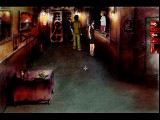
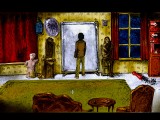
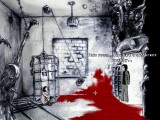
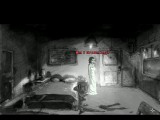
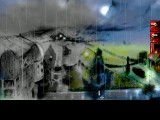
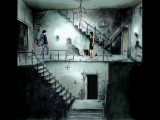
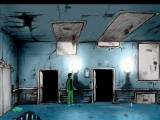
Share